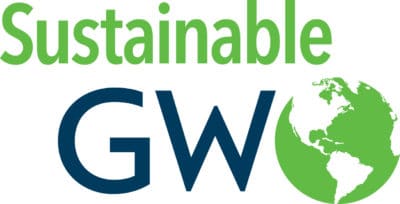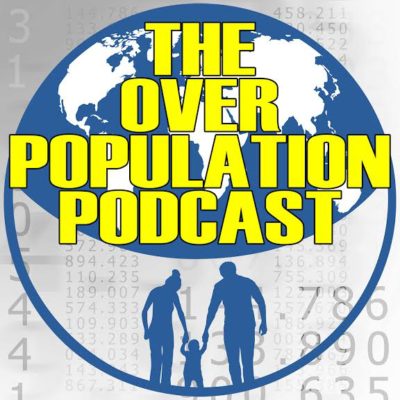Forum Schedule
Breaking the Population Taboo: Creating a Sustainable Future for Children
April 9, 2019 | George Washington University
SESSION 1, 1:00 PM – 2:30 PM
Introduction
Maureen Cohen Harrington (Moderator), Special Projects Manager, Having Kids
Welcomes
Jonathan Deason, PhD, on behalf of the Environmental and Energy Management Institute
Dr. Tara Scully, on behalf of Sustainable GW
Population Overview
Alexandra Paul, Actress and Population Activist
How and why has the world’s human population increased over time, and what are some of the impacts? Why are our numbers continuing to increase, even as average family size is decreasing over much of the world? Can the world accommodate our growing numbers if we make lifestyle changes and improve our technologies? What are some humane solutions to lowering the overall number of people on the planet?
Upcoming OPS Documentary + Loss of Biodiversity
Leilani Münter, Race Car Driver and Environmental Activist
Oceanic Preservation Society, the Academy-Award winning filmmakers behind the documentaries “The Cove” and “Racing Extinction,” will be at the forum collecting footage for their upcoming, currently untitled, documentary feature film about population. A brief discussion of that film, then of why the growing number of humans and farmed animals is a threat to biodiversity.
Keynote – What should I—and we—do about overpopulation?
Travis Rieder, PhD, Johns Hopkins Berman Institute of Bioethics
Discussion of human overpopulation is ethically fraught, and requires serious, careful moral reasoning. So that’s one of the first things we’ll do at this forum. Recognizing that we are not making merely empirical claims about, say, the planet’s carrying capacity, but also moral claims about what we ought to do, we will reflect on the nature of these claims and whether they are defensible. In particular, we will investigate two, broad questions essential to the discussion of human overpopulation. First, would it be permissible to adopt policies designed to lower fertility rates? And second, is it wrong for individuals to have a large family—or even any children at all?
Read the full abstract.
BREAK, 2:30 PM – 2:45 PM
SESSION 2, 2:45 PM – 3:40 PM
Welcome
Erika Mathews, on behalf of Having Kids
Awareness and Messaging
Terry Spahr, Executive Director, Earth Overshoot; Producer, “8 Billion Angels”
Dr. Karen Shragg, Naturalist and Children’s Book Author
Willow Phelps, Age 11, Suing Federal Government Over Climate Change
Sarah Bexell, PhD, Clinical Associate Professor, University of Denver; Community Connections Associate, Having Kids
Relatively few people know that the world’s human population has doubled since 1972, or that we’ve added 1 billion people in the last 12 years. How can we raise awareness about the world’s rapidly growing human population, and the causes and impacts of our growing numbers? How can we employ messaging that is effective, and not counterproductive, when addressing a slew of sensitive subjects? What are the challenges of conveying these messages in film, books, online, and other mediums of expression? How can our messaging be context-appropriate, based on speaker and audience? Might the increasing number of children who are litigating or protesting about climate change also start raising awareness that the world’s human population could reach 11 billion in their lifetimes? When we do raise awareness, how can we inspire action, instead of despair? Are the causes, impacts, and solutions more clear if we shift our political, economic, social, ethical, or other paradigms?
BREAK, 3:40 PM – 3:50 PM
SESSION 3, 3:50 PM – 4:50 PM
World View
David Rain, PhD, Associate Professor of Geography and International Affairs, The George Washington University
Abdul Malik Ghauri, Population Planning Advocate and Former Magistrate & Senior Civil Officer of Pakistan
Kate Cho, MHS, Senior Program Officer, The Challenge Initiative at the Bill & Melinda Gates Institute for Reproductive Health
Where are people, now and over time, and how are these numbers linked to other factors? We’ll explore by country and region, city vs. rural, and in other ways. How are the numbers impacted by rates of mortality, fertility, contraception, and migration? By wealth distribution, GDP, land use, education, empowerment of women and girls, laws, religion, and social norms? What is the role of the United States, if any, in helping other countries? What can we learn from other countries? What were the reasons for China’s one-child policy, and the impacts, successes, and mistakes of the policy and its implementation? What steps have other countries taken, directly or indirectly, to reduce their populations? What has happened when population-dense countries have not done so?
BREAK, 4:50 PM – 5:00 PM
SESSION 4, 5:00 PM – 6:30 PM
Economics, Politics, and Activism
Brian Czech, PhD, Executive Director, Center for the Advancement of the Steady State Economy (CASSE)
Ashley Berke, Director of Communications, Having Kids
Tommy Wells, Director of the District of Columbia Department of Energy and Environment
Chris Weiss, Executive Director, DC Environmental Network & Director of Global Green’s DC Office
The United States and other high-income countries have much higher per capita consumption rates, so adjustments in our population have an especially high impact. This panel focuses on our own numbers and consumption. Is economic growth a threat, not only to the environment, but also to a healthy economy? Should we strive for a steady state economy, perhaps following a period of degrowth? What steps can federal, state, and local governments take to reduce our numbers and consumption? How much can we accomplish via incentives, instead of penalties? Should we have changes to tax and family planning policies? To the Green New Deal? How can we engage in effective advocacy? How can we work with environmental organizations and other groups to incorporate population considerations into their own agendas, and theirs into ours?
Guided Brainstorming
Where do we go from here? All hands on deck. Ashley Berke and Sarah Bexell will lead a guided brainstorming session with all panelists and attendees. We’ll also discuss topics for a possible population hackathon at GW.
Closing Remarks
RECEPTION, 6:30 PM – 7:30 PM
Return to the event main page.





